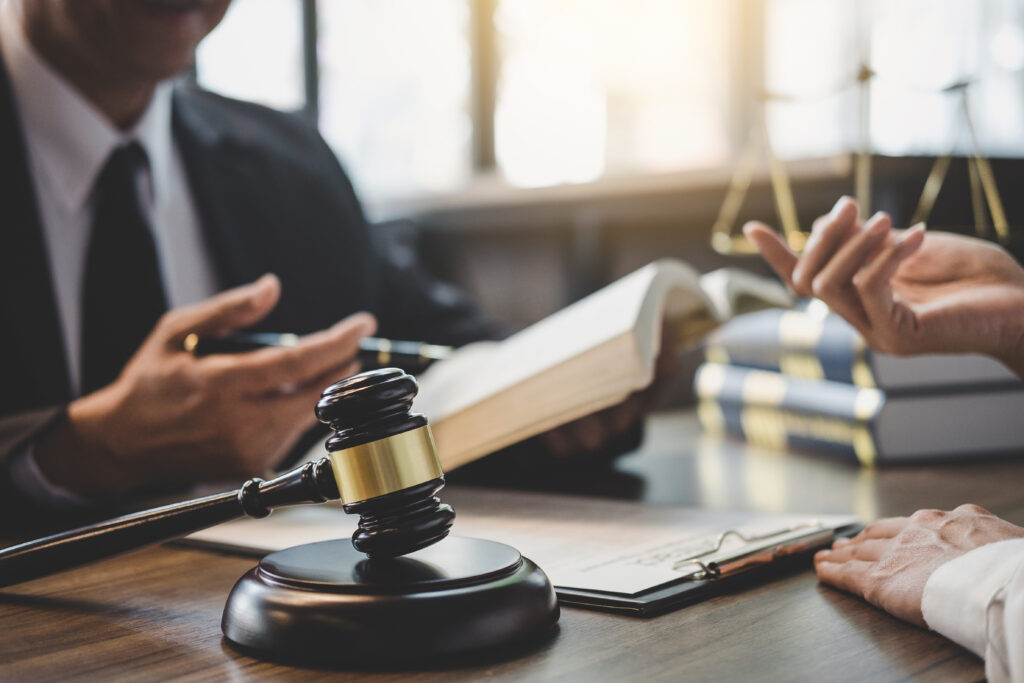Knowing what to do after an accident injury will increase the likelihood of medical recovery while seeking your right to recover financial compensation.
Speak with an experienced Abilene personal injury lawyer to discuss your legal recourse immediately. You'll want to strategize a way to secure a settlement after an accident resulting in injury or wrongful death.
What to Do After an Accident Injury
After the initial shock and adrenaline rush begin to wear off, accident and injury victims often wonder what to do next. Several steps will protect your health and legal rights.
These steps include undergoing a medical evaluation, following your medical recovery plan, reporting your accident, documenting your injuries, keeping a record of all financial losses, and hiring a personal injury lawyer.
Undergo a Comprehensive Medical Evaluation

A medical evaluation after your accident injury can document injuries relating to the accident, as well as determine a rehabilitation plan for your recovery.
Regardless of how you feel following an accident, have a medical professional evaluate you fully. Despite significant injuries, adrenaline can trick the body into feeling okay.
A doctor will perform necessary diagnostics and imaging after an accident to diagnose or rule out common injuries associated with personal injury, such as:
- Traumatic brain injuries (concussions, contusions, and skull fractures)
- Spinal cord injuries
- Whiplash and other soft tissue injuries
- Fractured or broken bones
- Burns
Internal injuries are especially dangerous if they go undetected, making a medical evaluation vital after an accident. Things like internal bleeding can lead to death without detection and diagnosis. Do not delay seeking a medical exam following an accident.
Follow Your Medical Discharge Instructions
After undergoing a medical evaluation, you will receive a discharge summary with aftercare instructions. You must follow your medical recovery plan. Depending on the severity of your injuries, your aftercare plan may include referrals to surgeons, physical therapists, and other medical rehabilitation professionals.
Make and keep your appointments. Prioritize your recovery to ensure your health before the statute of limitations expires on your claim. The worst thing you can do is delay or avoid treatment.
Report Your Accident to Your Insurance Company
Depending on the nature of your accident, it is important to report it to your insurance company. For example, a motor vehicle accident. Car insurers have varying regulations. Some have a prompt reporting policy, while others extend 30 days. Legally represented clients often defer this step to their attorneys.
Keep a Post-Accident Injury Journal
One of the most critical steps to securing compensation for pain and suffering damages is with a post-accident injury journal.
These journals should include dates and detailed descriptions about:
- Accident leading to your injuries
- Injuries sustained in your accident
- Pain levels, including chronic or debilitating pain
- Limitations or restrictions on mobility
- Limitations or restrictions on your ability to perform everyday tasks
- Sleep disturbances
- Your emotional state
Keep a Record of All Financial Expenses
Keep a record of all financial damages incurred from the accident. You shouldn't bear the burden of money losses, especially when the accident wasn't your fault.
Standard financial expenses your attorney will seek include:
- Medical, rehabilitation, and disability costs
- Income losses, including salary, bonuses, benefits, and future earnings
- Vehicle-related expenses, including repair, replacement, and rental car costs
- Property damages, such as cell phones, fences, and mailboxes
Financial documents showing your economic losses are the easiest way to prove them. These documents may include receipts, billing statements, repair invoices, and bank statements. Ensure your attorney has copies of everything to calculate your damages accurately.
Hire a Personal Injury Attorney

Accident injury victims should hire a personal injury lawyer to represent their legal rights immediately.
An attorney gives you a better chance of obtaining and maximizing compensation by providing the following services:
- Working for contingency so there are no upfront or ongoing costs to clients
- Protecting you against bad-faith insurance tactics (delaying and denying claims)
- Gathering and preserving evidence
- Thoroughly investigating your case
- Identifying and interviewing key witnesses
- Working with experts to prove liability, injuries, and damages
- Negotiating maximum settlements from all liable parties
Fortunately, insurers prefer to settle outside court, so most cases never go to trial. However, if your personal injury attorney and the insurance company cannot agree on settlement terms, they will represent your right to compensation in court.
What Not to Do After an Accident Injury
In addition to the steps to take after an accident injury, you shouldn't do three things:
- Don't give a recorded statement to liable insurers.
- Don't post on social media.
- Don't wait to contact a personal injury lawyer.
Don’t Give a Recorded Statement to Liable Insurers
One of the first things a liable insurance company may do is call you and ask you to give a recorded statement. While they may sound like a concerned friend on the other end of the line, they are determined to find any way to deny liability. That is the job of an insurance claims adjuster.
They obtain a recorded statement to scrutinize it for any statements you make that they can use to deny partial or total liability. Many of them bank on knowing that if they get you to make the recorded statement before your injuries fully impact you, you may say things such as "I'm feeling okay" or "I don't think I am seriously injured."
Unfortunately, several injury symptoms can take days or weeks to develop. You may have felt fine the day of or after the accident before whiplash or concussion symptoms hit you on day three. Still, they may twist those statements to suggest something else.
If you already provided a recorded statement to the liable insurer, consult a personal injury lawyer to determine how to recover the compensation you deserve.
Don’t Post to Social Media
Another tactic of insurance companies is watching an injury victim's social media accounts. They do this hoping to find posts that indicate a lack of injuries or downplay their severity. You may post an image of you smiling, and they may spin a narrative that results in an undervalued or denied claim.
Don't post to your social media. If you already posted about your accident and injuries, speak to your personal injury attorney. They will best advise you on what to do next.
Don’t Wait to Contact a Personal Injury Lawyer
Finally, do not wait to contact a personal injury attorney. Their contingency arrangements make it possible for everyone to afford legal counsel right away. You do not have to navigate the legal system alone. Schedule a free consultation to discuss your case today.